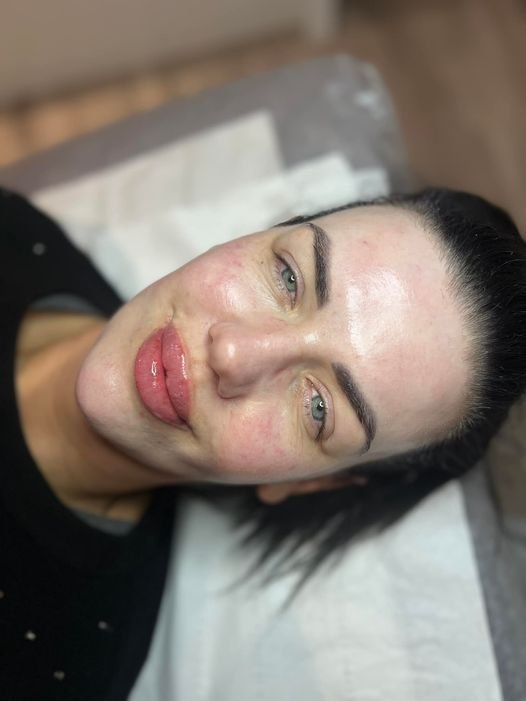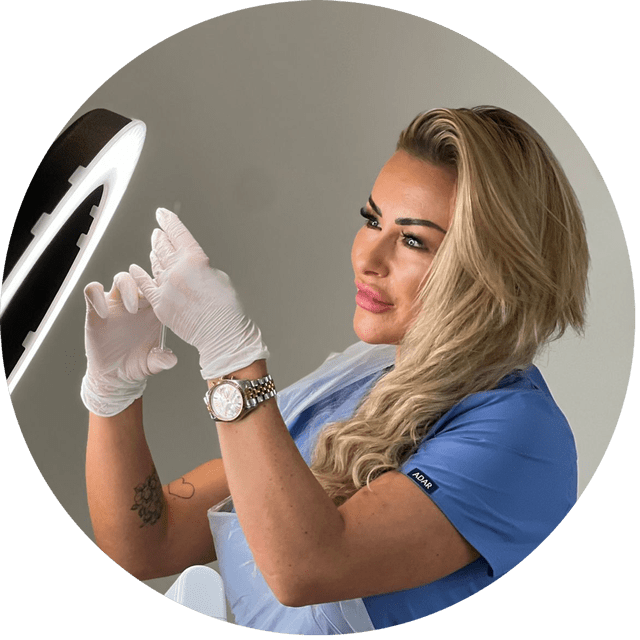Making Big Waves in the Aesthetics Market

Polynucleotides are an exciting approach sweeping through the aesthetics industry with unparalleled impact providing innovative treatments for skin rejuvenation, wrinkle reduction, and enhanced skin quality. Polynucleotides are not entirely new, but they have gained attention in recent years for their potential applications in skincare and aesthetic treatments.
The use of polynucleotides derived from sources like salmon DNA in aesthetic procedures is a relatively modern development. However, research into the properties and potential benefits of polynucleotides has been ongoing for some time. As with many innovations, advancements in technology and scientific understanding have led to increased interest and utilization of polynucleotides in various fields, including dermatology and aesthetics.
So what are Polynucleotides?
Polynucleotides are injectable Bio Stimulators and are large molecules made up of nucleotide units connected by phosphodiester bonds. Nucleotides consist of a phosphate group, a sugar molecule, and a nitrogenous base. Molecules with elevated elasticity are crafted from fish sources that closely resemble human DNA and these molecules form the backbone of DNA and RNA, with the sequence of nucleotides encoding genetic information. DNA stores genetic instructions, while RNA plays diverse roles including protein synthesis.
What are Polynucleotides’ benefits for the skin?
Moisturization-Polynucleotides can help improve skin hydration by attracting and retaining moisture, leading to softer and more supple skin.
Anti-aging-They may possess anti-aging properties by promoting collagen synthesis and reducing the appearance of fine lines and wrinkles, thus contributing to smoother and firmer skin.
Wound Healing- Polynucleotides have been studied for their potential to accelerate wound healing by stimulating the regeneration of skin cells and promoting tissue repair.
Anti-inflammatory- They may have anti-inflammatory effects, which can help calm and soothe irritated or inflamed skin, making them beneficial for individuals with sensitive or reactive skin.
Antioxidant- Some research suggests that polynucleotides possess antioxidant properties, which can protect the skin from oxidative stress caused by environmental factors such as UV radiation and pollution, thereby preventing premature aging and damage.
Skin Barrier Repair- Polynucleotides may support the skin’s natural barrier function by enhancing lipid production and reinforcing the skin barrier, which helps prevent moisture loss and improves overall skin health.
Support with Scarring- Polynucleotides have shown potential in aiding scar healing and reducing their appearance. They may promote wound healing by stimulating the regeneration of skin cells and supporting tissue repair processes.
Enhanced Absorption of Other Ingredients-When incorporated into skincare formulations, polynucleotides may enhance the absorption and efficacy of other active ingredients, allowing for better penetration into the skin and improved results.
How do Polynucleotides work?
Polynucleotides, comprising lengthy sequences of nucleotides, serve as the fundamental building blocks of DNA. Their roles encompass cellular repair, regeneration, moisturization, and shielding against detrimental external factors such as UV radiation. The aim of injecting the product is to prompt cells to generate certain components that diminish with age. Essentially, it can change DNA expression and they can enhance collagen and elastin production by stimulating fibroblast cells, alongside promoting tissue regeneration and revitalizing skin texture and elasticity. Not only this but they have antioxidant and moisturizing effects, complementing the bio-remodelling process, thereby yielding skin that appears and feels rejuvenated. The chains of polynucleotides also possess a remarkable ability to attract and retain water molecules, thereby imparting a potent moisturizing effect, which can significantly enhance tissue elasticity.
Moreover, polynucleotides exhibit notable antioxidant properties, combating skin damage induced by various stressors like cellular stress, environmental aggressors, and UV exposure. This protective action helps mitigate cell damage and maintains skin health.
By fostering an optimal environment for fibroblast proliferation, crucial cells involved in tissue repair and regeneration, polynucleotides actively promote skin rejuvenation and healing processes. They have the unique capability to activate fibroblast and stem cells, thereby augmenting the body’s innate ability to regenerate skin cells.
This diverse range of functions positions polynucleotides as regenerative treatments, offering a novel and innovative approach in the realm of skincare and rejuvenation.
What are the differences between Skin Boosters and Polynucleotides?
Skin Boosters
- Skin boosters typically refer to injectable hyaluronic acid-based treatments designed to hydrate, rejuvenate, and improve the overall quality of the skin.
- Hyaluronic acid is a naturally occurring substance in the skin known for its ability to attract and retain moisture, thereby enhancing skin hydration and elasticity.
- Skin boosters work by replenishing hyaluronic acid levels in the skin, improving hydration, smoothing fine lines, and enhancing skin texture.
- These treatments are often used to address concerns such as dryness, dullness, fine lines, and overall skin aging.
Polynucleotides:
- Polynucleotides, on the other hand, are long chains of nucleotides derived from sources like salmon DNA.
- They are believed to have regenerative properties, promoting cellular repair and regeneration in the skin.
- Polynucleotides can attract and bind water molecules, providing moisturizing effects similar to skin boosters.
- Additionally, they possess antioxidant properties that help protect the skin from environmental damage and oxidative stress.
- Polynucleotides may also stimulate fibroblast and stem cell activity, supporting collagen production and skin rejuvenation.
- These treatments are often used to improve skin texture, reduce wrinkles, enhance skin firmness, and promote overall skin health and vitality.
In summary, while both skin boosters and polynucleotides aim to improve skin quality and appearance, skin boosters primarily focus on hydration and rejuvenation through hyaluronic acid, while polynucleotides offer additional regenerative benefits through their DNA-derived properties. The choice between the two would depend on individual skincare concerns and treatment goals.
Who is suitable for Polynucleotides?
Suitable candidates for polynucleotide treatments typically exclude individuals with specific dietary restrictions such as vegetarians, vegans, or those allergic to fish due to its animal-derived nature. Additionally, it’s not recommended during pregnancy or breastfeeding, aligning with general precautions for injectable procedures. Due to its natural composition and compatibility with various anatomies, nearly anyone can be considered a candidate. However, thorough medical history assessment and screening for psychological disorders are essential prerequisites ensuring safety and suitability before proceeding with any aesthetic treatments.
What are the Risks?
As with any injectable procedure, there are potential risks to consider such as infection, bruising and swelling, however, compared to dermal fillers the risks may be lower compared to other injectable treatments, it ultimately depends on the provider, their expertise, and their technique. It’s important to acknowledge that unlike dermal fillers, polynucleotide treatments cannot be reversed because Polynucleotides cannot be dissolved. However, the risk associated with polynucleotides is considerably lower since the product is not in a thick gel matter and cannot cause vascular occlusions.
How much are Polynucleotides?
They start from around £250.00 to £700.00 per session depending on clinic visited, which area it is to be treated, and how large the area.





